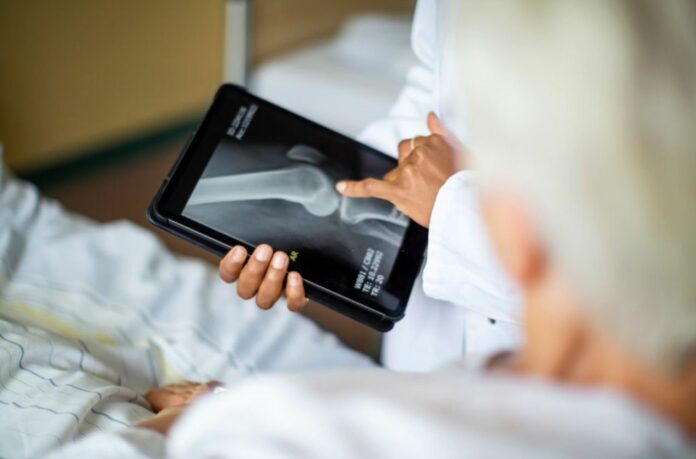Neglect your bones and you’ll regret it – test yourself to see how strong your bones are or if you’re at increased risk of premature death.
Researchers from The University of Technology Sydney (UTS) have conducted a comprehensive study to quantify the impact of bone fractures on early mortality. Their findings have led to the development of a publicly available tool that can be utilized by doctors and patients to assess the associated risks.
Published in the esteemed scientific journal eLife, the research titled “Skeletal Age” provides insights into the extent of life expectancy reduction following a bone fracture. Analyzing data from over 1.6 million adults, the scientists determined that the loss of life could range from one to seven years, depending on factors such as gender, age, and the site of the fracture.
Building upon this groundbreaking discovery and previous work conducted by Professors John Eisman, Tuan Nguyen, and Jacqueline Center at the Garvan Institute, the researchers introduced the concept of “Skeletal Age” as a novel measure for evaluating the mortality impact of fractures.
To facilitate a better understanding of the severity of bone fractures, the metric has been incorporated into an online calculator known as BONEcheck. This innovative tool enables doctors and patients to assess bone fragility and comprehend the implications of fractures more effectively.
The primary objective of BONEcheck is to raise awareness and reduce the risk of premature death among individuals with osteoporosis. According to UTS Distinguished Professor Tuan Nguyen, who leads the project, patients who experience a hip fracture face a significantly higher risk of early mortality, with approximately 30% of patients succumbing within a year of the fracture. Nevertheless, the risk of premature death also escalates with other types of fractures.
“Although a bone fracture can reduce a person’s lifespan,” remarks the author, “patients who suffer from a fracture don’t fully understand this reality.”
The primary objective of the Skeletal Age tool is to assist patients in gaining a more comprehensive awareness of the risks linked to bone fractures by assessing the average decrease in life expectancy.
“With greater awareness of these risks, doctors and patients will be more likely to take preventive measures to reduce the risk of premature death,” points out Professor Nguyen.
According to Dr. Thach Tran, co-lead author of the study, the current method of doctor-patient communication regarding fracture risk relies on probability. However, this approach has its limitations as patients often struggle to understand it. For instance, they may misinterpret a 5% risk of death following a hip fracture over a 5-year period as a 95% chance of survival.
To address this issue, the Skeletal Age tool offers an alternative approach to convey fracture risk to patients. Instead of informing a 60-year-old woman that her risk of death following a hip fracture is 5%, the tool can inform her that her skeletal age is 65. This method provides a clearer understanding of the individual’s fracture risk and enhances communication between doctors and patients.
Professor Nguyen asserts that the creation of the Skeletal Age tool represents a significant advancement in the effort to prevent premature mortality linked to osteoporosis.
“With this new tool, doctors and patients can work together to reduce the risk of bone fractures and ensure better bone health for all.”
Image Credit: Getty
